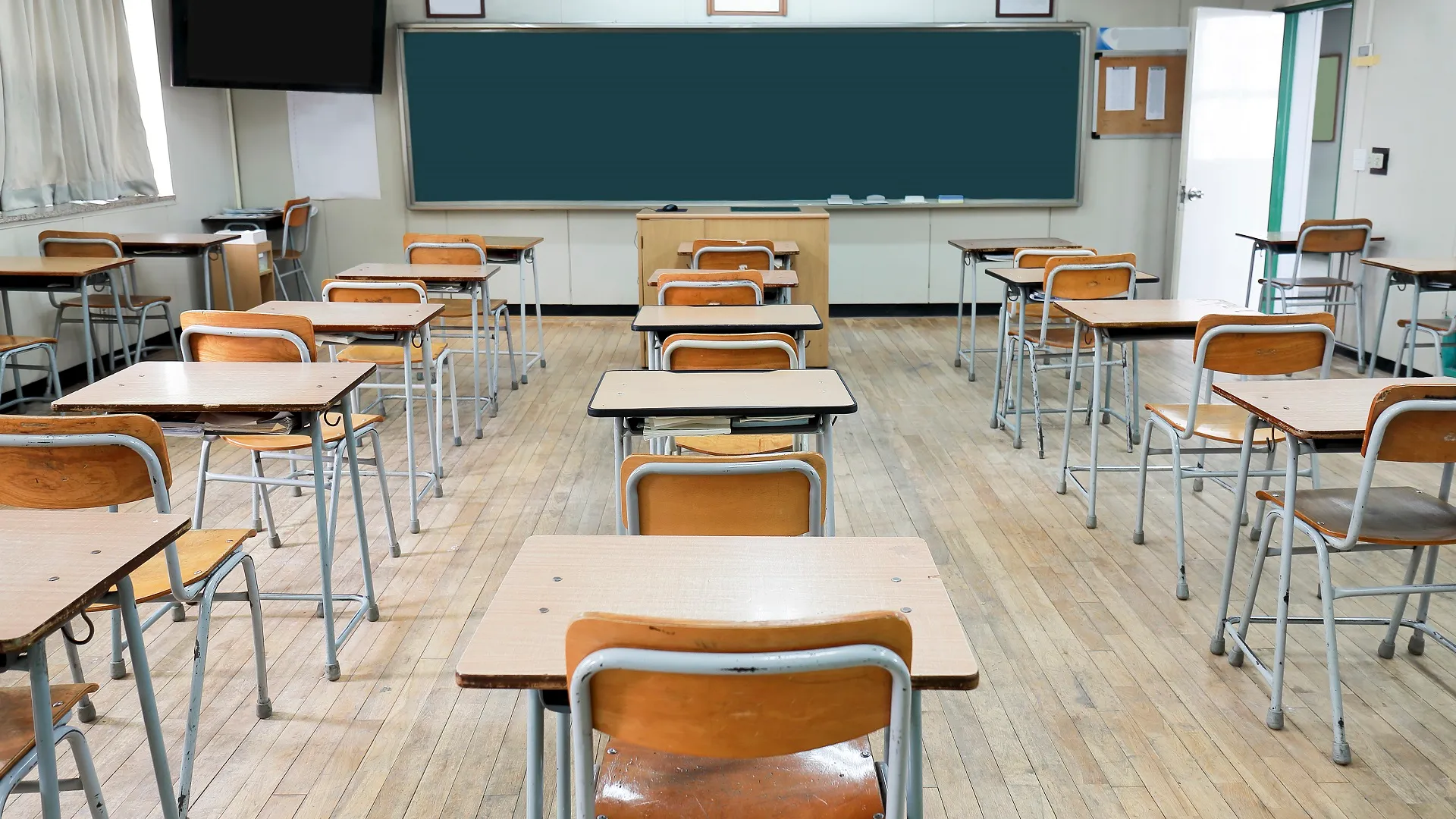Today more than ever, education is a main concern for every state that wants to survive in such a competitive and globalized world.
Unfortunately, Italy is not well performing on education and the Education and Training Monitor 2021 of the European Union is clear about it: In 2019, most of the education budget (76%) was used to pay employees, which is higher than the average in the European Union (64%). However, less money was spent on buying goods and services (10%) and investing in assets (3%) compared to the EU average of 14% and 7%, respectively.
Maybe a change in Italy’s education system is needed.
In particular I want to discuss teacher quality. The main reason is that I think it is one of the major problems in Italy’s educational system.
1. Approximately half of the teachers, in Italy, specifically 48%, are 50 years old or older. Additionally, when there is a vacancy for a permanent teaching position, it is first offered to teachers who already have a permanent position, rather than being open to all applicants. This means that older teachers, who have been in the system longer, have an advantage in obtaining the most desirable positions. The Italian government is currently trying to expand the number of permanent teaching positions available, but this system still results in an uneven distribution of older teachers across schools. This is problematic seen that, in general, older teachers are less motivated than their younger counterparts and they lack the pedagogical skills taught to more recent cohorts of teachers. This system could negatively impact student achievement, as teachers who are less motivated or lack the most recent pedagogical training may be less effective at helping students learn and succeed.
2. In Italy, a high percentage of teachers (27%) report that they have never received feedback in their schools, which is significantly higher than the OECD average (10%). The feedback that is commonly used in Italian schools includes the analysis of school and classroom results, external student outcomes, and observation of classroom teaching by supervisors.
3. The salary system for primary and secondary school teachers is determined by a national salary scale that takes into account a teacher’s seniority and experience. This salary scale is established by national collective agreements that are negotiated between teachers’ union and the Ministry of Education. In general, teachers in Italian schools receive a fixed monthly salary, which is determined by their position on the salary scale. The position in the salary scale is determined by factors such as the teacher’s level of education, experience and qualifications. There is no system of “variable pay” based on teachers’ performance, at least not at the national level (and, in my opinion, this is a major negative aspect).
These are, in my opinion, the main problems concerning teacher quality. However, I think the most important point is the variable pay. It is unthinkable to continue to base salary only on working hours. It is necessary to take a step forward: to consider no longer the hours worked but the value created during work. This concept should be applied to every job (when possible).
Performance-related pay for teachers is being introduced in many countries. The underlying reason is that incentive pay can motivate teachers to improve their performance. Many experimental programs were conducted to demonstrate the effectiveness of incentive pay: for example the experimental program, led by Victor Lavy in Israel, that offered teachers bonus payments on the basis of the performance of their classes in high-school matriculation exams in English and mathematics, shows effect on teachers’ pedagogy and effort, on teacher’s productivity (as measured by students’ achievements), and on teachers’ grading ethics.
The experiment indicates that pay-for-performance incentives can positively affect student’s achievements and teacher’s productivity without necessarily inducing behavior distortions such as test score manipulation or teaching-to-test practices. Despite this, it is still necessary to provide penalties and controls to avoid these problems.
While you're navigating the vast ocean of information and entertainment on the internet, it's crucial to ensure your digital surfing is safe and unrestricted. That's where Surfshark comes into play, offering you a seamless and secure online experience.
Surfshark is a cutting-edge VPN, Ad-Blocker, Anti-Virus and Alternative ID service designed to protect your privacy, secure your digital life, and open up a world of content without borders. Whether you're streaming your favorite shows, shopping online, or browsing the web, Surfshark keeps you safe with industry-leading encryption and privacy features. Thanks to TheGameTV, now every plan is discounted
Another issue of Italy’s educational salary system is that, as I told before, the position in the salary scale is determined by factors such as the teacher’s level of education, experience, and qualifications.
In a paper written by Eric A. Hanushek and Steven G. Rivkin, and published by Stanford University, the authors highlight that neither a graduate degree nor additional years of experience past the initial year or two translate into significantly higher instructional effectiveness. It is sufficient to bring into question a salary structure like the Italian one. Finally, the failure of quantifiable characteristics to explain much of the variation in teacher effectiveness suggests that efforts to raise the quality of instruction through more stringent requirements for entering the teaching profession may be seriously misguided, particularly as they may discourage many from entering the profession by raising the cost of becoming a teacher.
I am not saying we should not take into account the level of education, experience and qualifications. I’m pointing out that we should give less importance to education, experience and qualifications, to take mostly into account performance.
A research paper written by Charles T. Clotfelter, Helen F. Ladd, Jacob L. Vigdor and published by University of Wisconsin shows that surely teacher credentials, particularly licensure and certification, affects student achievement in systematic ways but it points out that the effect of an additional year of experience is higher in the early years: beyond the first five years, additional experience adds little to effectiveness. The research paper also shows that there is no difference between teachers who received their master’s degrees before entering the profession and those without master’s degrees.
Another problem, related to teachers’ quality, is overcrowding: many classrooms in Italy are overcrowded, which makes it difficult for teachers to give proper attention to all students and maintain an effective learning environment. Reducing class sizes can help teachers provide more personalized and high-quality education.
Limited resource availability, as told at the beginning, is also another issue: many Italian schools do not have access to the resources necessary to offer high-quality education. This can include technological resources, libraries, and teaching materials. Access to resources such as technology, teaching materials, and equipment can help teachers offer high-quality education. Therefore, it is important to provide greater resources to schools and teachers.
COPYRIGHT Andrea Pimpini
References:
- European Commission’s Education and Training Monitor 2021: https://op.europa.eu/webpub/eac/education-and-training-monitor-2021/en/italy.html
- Centre for Economic Policy Research (CEPR): https://cepr.org/voxeu/columns/teacher-allocation-and-school-performance-italy
- Organisation for Economic Co-operation and Development (OECD): https://gpseducation.oecd.org/CountryProfile?primaryCountry=ITA&treshold=10&topic=TA

Andrea Pimpini is a student of Economics and Management at the University of Chieti-Pescara and, from September 2022 to February 2023, he is also an Erasmus+ student at the University of Split (Faculty of Economics, Business and Tourism). Andrea has also taken three courses offered by the prestigious CERGE-EI Foundation and, being a Japanese language enthusiast, has taken two courses provided by the Japan-Abruzzo Association. In 2022, Andrea took the courses “Music Business Foundations,” “Copyright Law in the Music Business” and “Building your career in music: Developing a brand and financing your music” offered by Berklee Online on Coursera.org.
A big hobby of Andrea’s is music and, thanks to his college and web experiences, he manages everything on his own (print and radio promotion, digital marketing, etc.). Media success is not long in coming: in 2020, live streams are shared on national newspapers such as Sky TG24, alongside well-known names from the Italian music scene (Modà, Francesco Renga, Nek, etc.). In 2021, Billboard places Andrea at the top of a chart for 3 consecutive weeks. Finally, in 2022, Il Messaggero, one of the most popular and best-selling newspapers in Italy, interviews Andrea.


